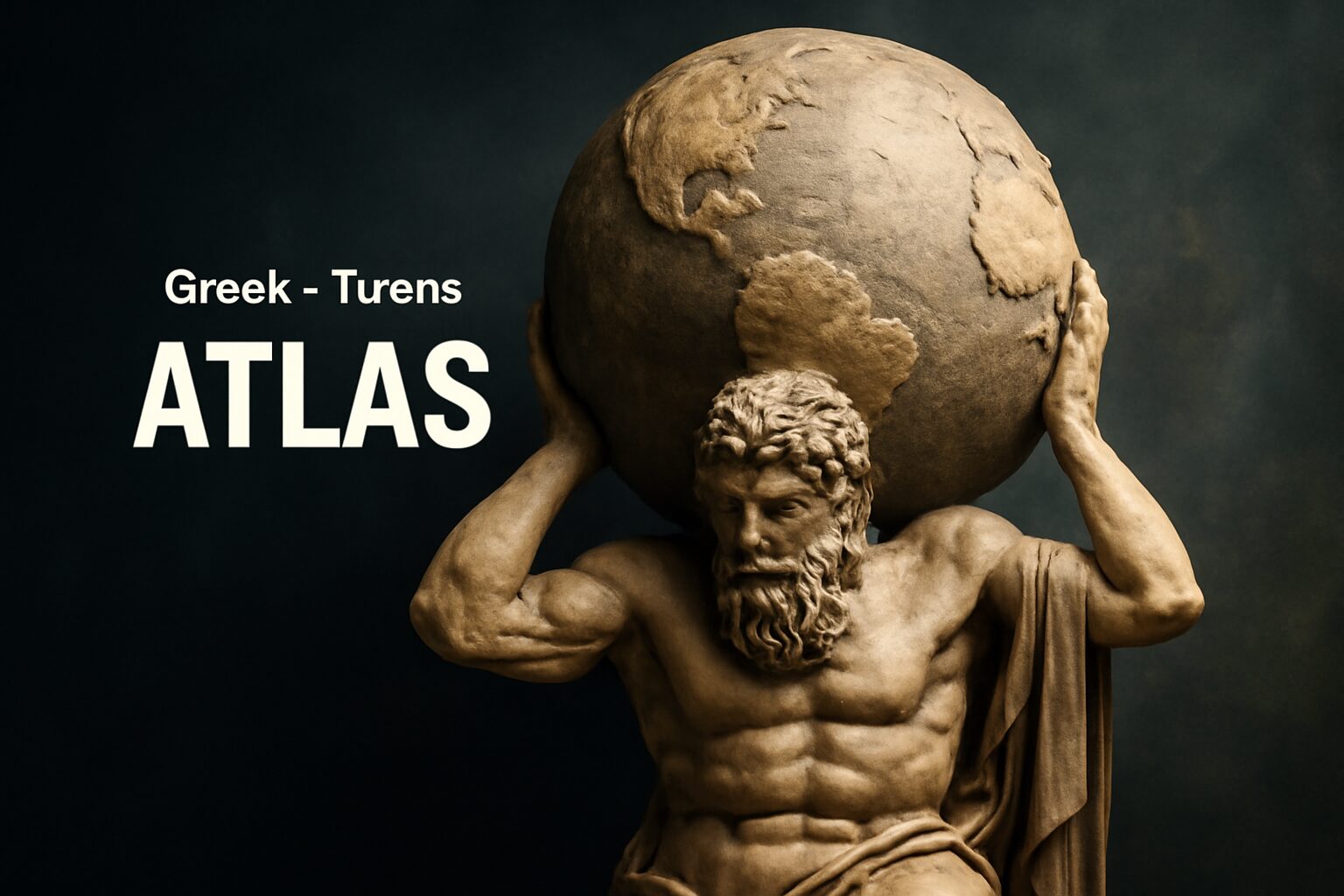Atlas: The Titan Who Held Up the Heavens
In Greek mythology, Atlas was one of the mighty Titans, the primordial deities who ruled before the Olympian gods. Known for his incredible strength, Atlas played a pivotal role in the Titanomachy, the great war between the Titans and Zeus's Olympians. His name has become synonymous with endurance and burden-bearing, thanks to his famous punishment from Zeus.
The Titan's Role in Mythology
Atlas was the son of the Titan Iapetus and the Oceanid Clymene, making him a brother to Prometheus, Epimetheus, and Menoetius. During the Titanomachy, Atlas led the Titans in their rebellion against Zeus. When the Olympians emerged victorious, Zeus condemned Atlas to an eternal punishment: holding up the celestial heavens (or in some versions, the Earth itself) on his shoulders to prevent them from crashing down onto the world.
Atlas and His Legendary Burden
The image of Atlas straining under the weight of the heavens is one of the most enduring in Greek mythology. Often depicted in art as a muscular figure kneeling or standing with the celestial sphere resting on his back, Atlas symbolizes strength, endurance, and the weight of responsibility. Some interpretations suggest his punishment was also symbolic—a warning against rebellion and defiance of divine order.
Atlas in Mythological Encounters
Atlas appears in several famous myths beyond his eternal punishment. In the story of Heracles (Hercules), the hero encounters Atlas during his Twelve Labors. Heracles needed to retrieve the Golden Apples of the Hesperides, which were guarded by Atlas's daughters. Temporarily taking the Titan's burden, Heracles tricked Atlas into reclaiming the heavens after retrieving the apples—a clever moment of mythic deception.
Another tale involves the hero Perseus, who turned Atlas into the Atlas Mountains using Medusa's head after the Titan refused him hospitality. This myth explains the origin of the mountain range in North Africa.
Atlas's Legacy
Beyond mythology, Atlas's name endures in geography, astronomy, and language. The Atlantic Ocean, the Atlas Mountains, and even the term "atlas" (for a collection of maps) all derive from his legend. In astronomy, one of Saturn's moons is named after him, further cementing his place in both ancient and modern culture.
Atlas remains a powerful symbol of resilience and the consequences of defiance, a reminder of the Titans' fall and the Olympians' dominance in Greek mythology.
Alternative Names for Atlas
God Name: Atlas (Roman)
In Roman mythology, the name remains the same as in Greek, 'Atlas,' as the Romans adopted many Greek deities and their names without significant changes.
God Name: Atlantes (Greek (Epithet))
An epithet sometimes used in Greek contexts, derived from his name, often referring to his enduring nature or his role in holding up the heavens.
God Name: Telamon (Greek (Alternative))
In some lesser-known Greek traditions, Atlas is referred to as 'Telamon,' meaning 'the enduring,' highlighting his eternal punishment of holding up the sky.
Tales about Atlas
Atlas and the Burden of the Sky
In the aftermath of the Titanomachy, Atlas was condemned by Zeus to bear the weight of the heavens upon his shoulders for eternity. As he stood at the edge of the world, the primordial goddess Nyx, the embodiment of night, would often sweep over him, her dark veil offering a brief respite from the unending strain. It was during one of these moments that Eleos, the spirit of mercy and compassion, descended from Olympus. Moved by his suffering, she whispered words of solace, reminding him that even in his punishment, he upheld the order of the cosmos. Though his burden remained, her presence imbued him with a fleeting sense of purpose amidst the agony.
The Golden Apples and the Hero's Gambit
Centuries later, Atlas found himself at the center of a cunning plot when the hero Heracles approached him. Tasked with retrieving the golden apples from the garden of the Hesperides, Heracles offered to temporarily hold the sky if Atlas would fetch the apples. Seeing an opportunity for freedom, Atlas agreed. However, upon returning, he attempted to abandon Heracles with the celestial weight. Heracles, with the guidance of Prometheus, outwitted him by asking Atlas to hold the sky just for a moment to adjust his cloak. As Atlas reluctantly resumed his burden, Heracles seized the apples and departed, leaving the Titan to his eternal duty, a testament to both cunning and fate in Greek mythology.
Frequently Asked Questions
Who is Atlas in Greek mythology?
Atlas is a Titan in Greek mythology who was condemned by Zeus to hold up the sky or heavens for eternity as punishment for leading the Titans in their war against the Olympian gods.
What are the Titans in Greek mythology?
The Titans were a race of powerful deities who ruled during the legendary Golden Age in Greek mythology. They were the children of Uranus (Sky) and Gaia (Earth) and preceded the Olympian gods, who eventually overthrew them in the Titanomachy (War of the Titans).
Why is Atlas important in Greek mythology?
Atlas is important because his punishment symbolizes endurance and the burden of responsibility. His story also explains ancient Greek beliefs about the structure of the world, as he was said to hold up the celestial sphere that separated Earth from the heavens.
What can we learn from the story of Atlas?
The story of Atlas teaches about consequences of rebellion, the concept of eternal punishment in mythology, and how ancient Greeks explained natural phenomena through divine stories. It also represents the human struggle with burdens and responsibilities.
How is Atlas referenced in modern culture?
Atlas is referenced in modern culture through the term 'atlas' for map collections (stemming from maps showing him holding the world), in literature and art depicting burden-bearing, and as a symbol of strength and endurance in various media and branding.













